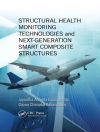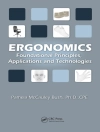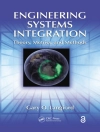Healthcare is one of the most promising applications of affective computing, where advances using biomedical signals have grown rapidly. This comprehensive book begins with an introduction to affective computing and affective computing models, artificial intelligence, probability theory, and statistical learning. It discusses topics such as noise elimination and baseline wandering effects of biomedical signals, and then proceeds to review biomedical signal acquisition and pre-processing. In this book, biomedical signals in affective states are discussed as well as artificial intelligence techniques used to classify biomedical signals, such as artificial neural networks and support vector machines. A discussion of affective computing applications in neurodegenerative diseases and neurological disorders concludes the book. Recent research is discussed alongside future challenges in these areas.
Key Features
- Provides an overview of modern affective computing techniques, from simple algorithms to complex ones
- Presents a step-by-step approach to designing intelligent affective computing applications for quick learning in healthcare
- Includes case studies of successful and unsuccessful techniques in biomedical signal processing to understand challenges with their implementation
- Includes several types of affective computing systems used in healthcare based on biomedical signals
İçerik tablosu
1 Anxiety recognition using a new EEG signal analysis approach based on sample density in a Chebyshev chaotic map
2 Evaluating cognitive load during lexical decision tasks for monolinguals and bilinguals using EEG
3 Detection of psychological stress using principal component analysis of phonocardiography signals
4 Affective computational advertising based on perceptual metrics
5 Machine-learning-based emotion recognition in arousal–valence space using photoplethysmogram signals
6 EEG-based human emotion classification from channel-wise feature extraction and feature selection
7 Detection of physiological body movements in affective disorder patients using EEG signals and deep neural networks
8 Voice-enabled real-time affective framework for negative emotion monitoring
9 Differential diagnosis tool in healthcare application using respiratory sounds under emotion and convolutional neural network
10 Virtual reality and augmented reality based affective computing applications in healthcare, challenges, and its future direction
Yazar hakkında
Professor Dr. M. Murugappan has worked at Kuwait College of Science and Technology (KCST), Kuwait, as a Full Professor in Electronics in the Department of Electronics and Communication Engineering since 2016. He has received more than 750K in research grants from Malaysia, Kuwait, and the UK. His publications include more than 140 peer-reviewed conference proceedings papers, journal articles, and book chapters. He is interested in affective computing, the Internet of Things (Io T), brain-computer interface, neuromarketing, signal/medical image processing, and artificial intelligence.












